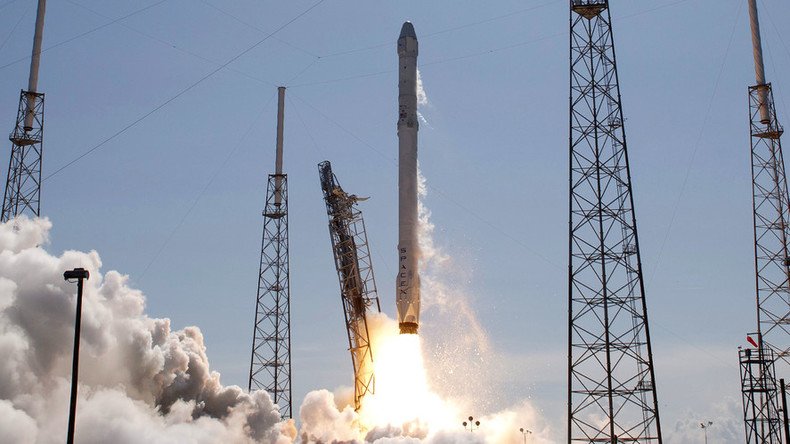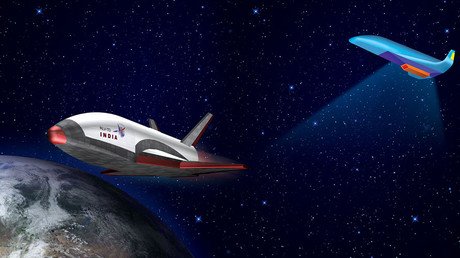US government expected to approve first private moon mission

US officials may approve a commercial mission to the moon, putting space travel beyond Earth’s orbit in the purview of the private sector for the first time in history.
The Wall Street Journal reported on Sunday that the government is close to officially endorsing a mission for space startup Moon Express, citing unnamed sources.
Once the details are worked out, the company will send a craft to escort a 20-pound payload of scientific gear to the moon in the second half of 2017.
"We've been a regulatory pathfinder out of necessity," because up until now "only governments have undertaken space missions beyond Earth orbit," Moon Express founder and CEO Bob Richards told the Journal.
The company is one of 16 that is competing for the Google Lunar X prize, which will award $20 million to the first firm to land a craft on the moon that can travel across the surface of the moon and send photographs back to Earth.
Federal approval is needed because private companies would need to comply with decades-old international space treaties that the US is privy to. The expected decision would set a precedent for the commercial use of space travel, paving the way for other private ventures who are already publicly trying to do business outside of Earth.
SpaceX CEO Elon Musk, for example, has plans to send an unmanned craft to Mars in 2018 to begin preparations for a human mission that is slated for 2024. Other companies have plans to mine asteroids and track potentially hazardous asteroid debris.
READ MORE: SpaceX to carry humans to Mars by 2024, says Elon Musk (VIDEO)
If the current trajectory is anything to go by, then space travel may be in the hands of private companies. Nearly 4.5 percent of the entire federal budget in 1966 went to NASA, but by 2014 this number had dropped to 0.5 percent – and with an ever-rising national debt, even more budget cuts have been proposed for the agency.
Meanwhile, private space exploration is becoming cheaper than ever. Moon Express projected six years ago that a moon mission would cost $50 million, but now thinks it will cost only half that, The Wall Street Journal reported.
NASA hasn’t reached the surface of the Moon since 2009, when it sent its LCROSS spacecraft as an impactor to explore the presence of ice on the moon. The agency’s future planned missions involve sending low-cost orbiters to scan the Moon’s surface in lieu of actual landers.
Russia hasn’t had a lunar lander program since 1976. Last week, however, Airbus signed an agreement with state space agency Roscosmos to create a new system to autonomously guide a robotic lander to a safe position on the Moon’s surface. The lander, called Luna-Glob, is expected to be launched in 2025.













